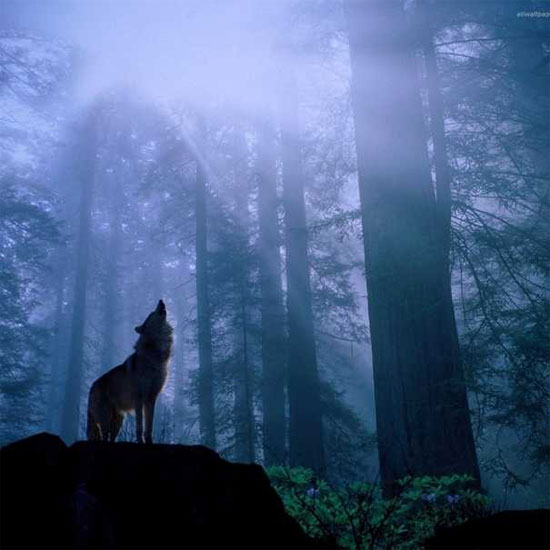Decode the screeching sound of wolves
The howl of the wolf, especially at night, made many people scary. Unlike conventional speculation, scientists discovered, this is the behavior that often reflects the wolf's affection for a close but far away individual.
According to researchers, wolves are more likely to cry out loud when a close member of their family leaves the flock.
Test results for hormone levels in this animal show that the reaction does not involve stress. This implies, they are simply missing their friends, brothers or partners.
"Our obtained data shows that howl in wolves is not a simple stress response due to being separated from close individuals. Instead, it can be used spiritually. More active to maintain contact and perhaps support reunification with allies, " Dr. Friederike Range is from the University of Veterinary Medicine (Vienna, Austria) and is the head of the study.

The wolf howling at night may be a sign of remorse for a close individual who has left the flock.(Photo: orangedonkey.net)
Current Biology reports that the team monitored nine wolves captured from two different colonies at the Austrian Wolf Science Center. Every day, experts take these chained wolves for a walk, one at a time. They observed that, each time they were taken out, the remaining wolves would start to roar.
In an effort to investigate the cause of the behavior, the team collected wolf blood samples to measure hormone levels as well as information about the relationships in the herd. They also recorded the time when wolves would react and the animals would cry the most.
The team discovered that wolves howl more when a wolf is particularly close to it or belongs to a higher social hierarchy, leaving the herd. There is no relationship between the amount of hormones that cause stress and their howl.
The team also discovered, when the rest of the group could sense the presence of members in the group, even if they did not see it with their own eyes, they could not cry. However, if they are brought back into the forest, they will start to howl.
In an earlier study, scientists from Nottingham Trent University (England) have found that the howl of each wolf is highly individual, implying that this animal can be identified by a deep cry. display. They hope, this discovery will give conservationists a precise way to track wolves - animals play an essential role in the food chain, but may be disastrous. with the farmer.
- Listen to the mysterious sound obtained from the deepest
- Little known facts about wolves
- Launched a fight against wolves in Russia
- The truth behind the photo of a humorous wolf population is causing storms to the online community
- Humans and dogs evolved together
- Decode the mysterious sound of
- The scaryness of sound: saving people and destroying each other in a narrow way!
- Decode the mysterious sound of the Northern Aurora
- The 'werewolf' 100% real version: Extraordinary, aggressive, attacks both polar bears
- Video: The war between wolves and buffaloes
- Europe at risk of radiation radiation
- Decode whale sounds
 'Fine laughs' - Scary and painful torture in ancient times
'Fine laughs' - Scary and painful torture in ancient times The sequence of numbers 142857 of the Egyptian pyramids is known as the strangest number in the world - Why?
The sequence of numbers 142857 of the Egyptian pyramids is known as the strangest number in the world - Why? History of the iron
History of the iron What is alum?
What is alum?